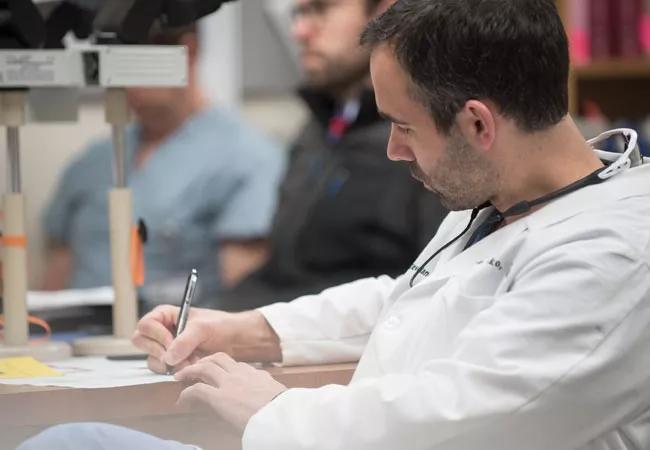Cleveland Clinic is one of six hospitals nationwide leading the Musculoskeletal Tumor Registry initiative

Image content: This image is available to view online.
View image online (https://assets.clevelandclinic.org/transform/7ad63498-90e5-4851-9ade-91372d6f6a86/19-ORT-1189-Mesko-CQD-Hero_jpg)
19-ORT-1189-Mesko-CQD-Hero
Every year, approximately 15,000 new cases of sarcoma are diagnosed in the United States. Sarcoma, a rare cancer that originates in connective tissue, accounts for about 1% of all cancer diagnoses in adults and about 15% of pediatric cancer diagnoses.
Advertisement
Cleveland Clinic is a non-profit academic medical center. Advertising on our site helps support our mission. We do not endorse non-Cleveland Clinic products or services. Policy
The Musculoskeletal Tumor Registry (MsTR), an initiative led by the American Academy of Orthopaedic Surgeons (AAOS) in collaboration with the Musculoskeletal Tumor Society (MSTS), was launched in early 2019. MsTR enables orthopaedic oncologists to share data, procedures and patient-reported outcomes about sarcoma and other rare connective disease tumors.
Cleveland Clinic is among six major academic medical centers chosen to participate in this program. Nathan Mesko, MD, one of the MsTR surgeon leaders, recently discussed the collaboration and its clinical implications for treating sarcoma patients in a Q&A with AAOS.
Nathan W. Mesko, MD, is the Center Director of Musculoskeletal Oncology in the Orthopaedic and Rheumatologic Institute at Cleveland Clinic. He is also co-director of the Sarcoma Center in the Taussig Cancer Institute at Cleveland Clinic.
Advertisement
Advertisement
First-of-its-kind research investigates the viability of standard screening to reduce the burden of late-stage cancer diagnoses
Global R&D efforts expanding first-line and relapse therapy options for patients
Study demonstrates ability to reduce patients’ reliance on phlebotomies to stabilize hematocrit levels
A case study on the value of access to novel therapies through clinical trials
Findings highlight an association between obesity and an increased incidence of moderate-severe disease
Cleveland Clinic Cancer Institute takes multi-faceted approach to increasing clinical trial access 23456
Key learnings from DESTINY trials
Overall survival in patients treated since 2008 is nearly 20% higher than in earlier patients